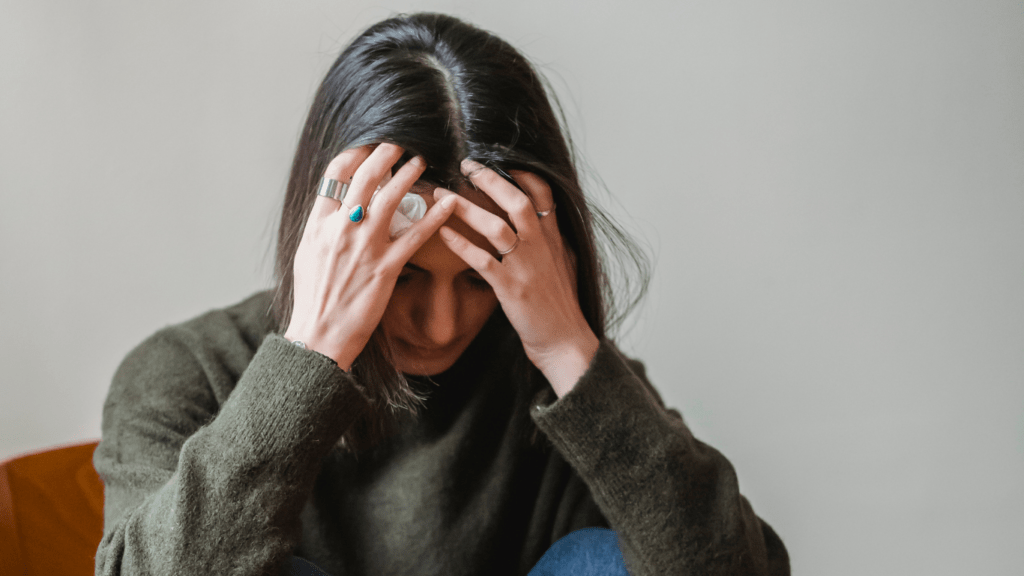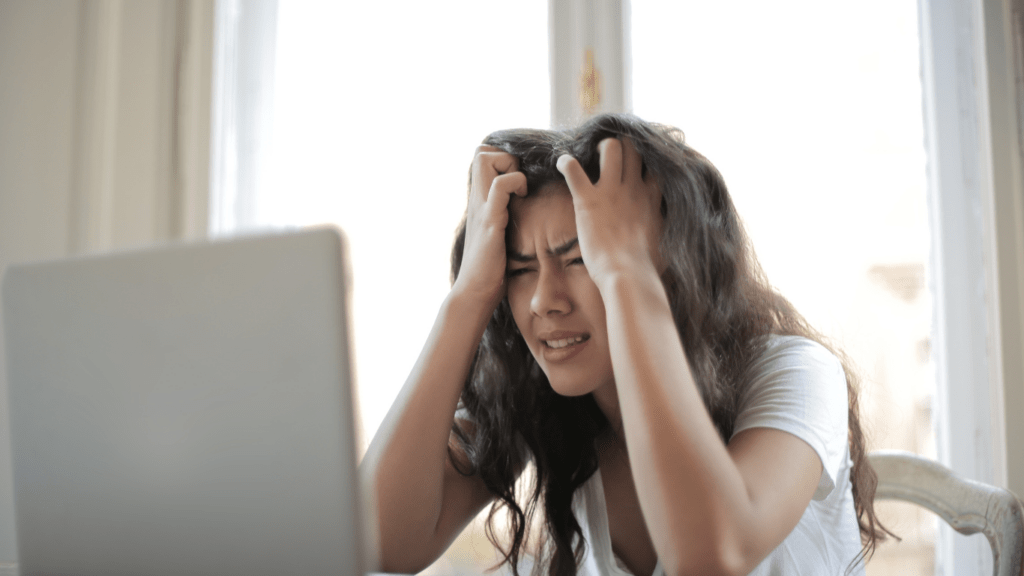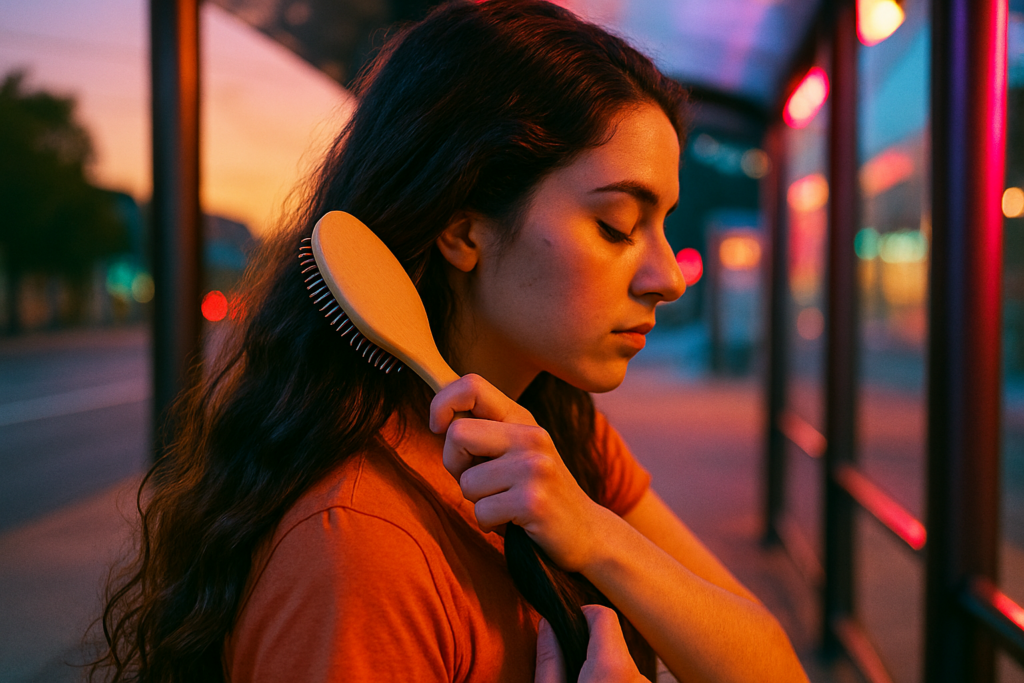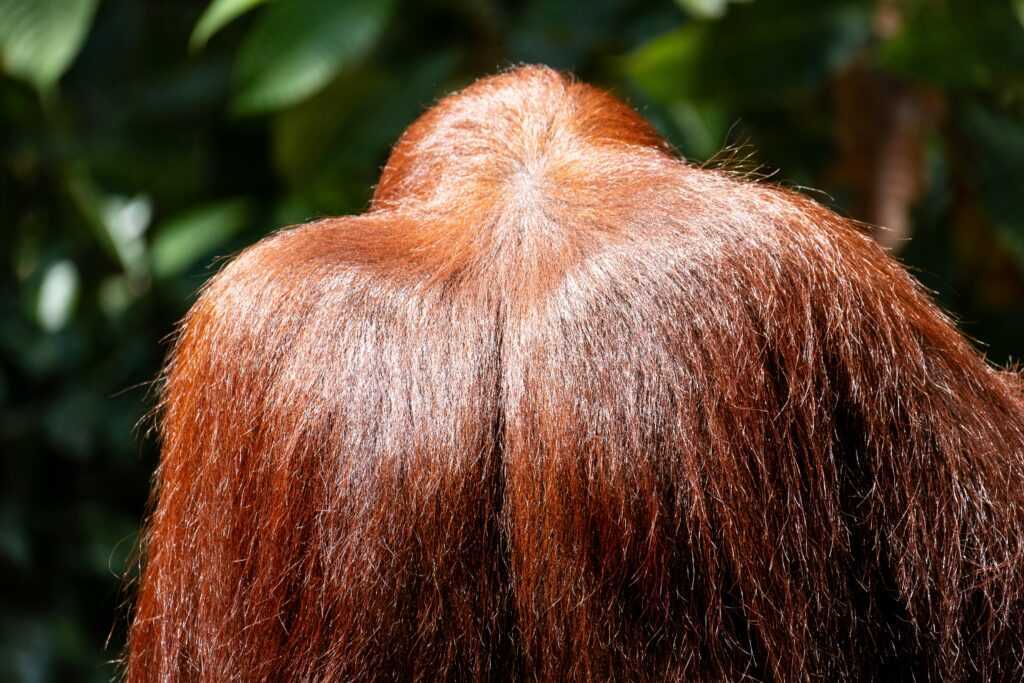Understanding the Connection Between Stress and Hair Health
Stress plays a significant role in hair health, influencing hair growth and contributing to various hair loss conditions.
How Stress Impacts Hair Growth
Stress affects hair growth by disrupting the hair growth cycle, causing more hair follicles to enter the shedding (telogen) phase prematurely. During the stress response, cortisol levels rise, which can interfere with the functioning of hair follicles and reduce nutrient absorption essential for hair growth. Chronic stress can lead to a noticeable decrease in hair density over time.
Types of Stress-Related Hair Loss
- Telogen Effluvium: This condition occurs when stress pushes a large number of hair follicles into the resting phase. Examples include sudden emotional trauma, major surgery, or severe illness. Within a few months, affected individuals may experience significant hair shedding.
- Alopecia Areata: Stress can trigger this autoimmune condition where the immune system attacks hair follicles. Symptoms include patchy hair loss on the scalp or other parts of the body.
- Trichotillomania: This psychological condition involves the compulsive urge to pull out one’s hair, often exacerbated by stress. People suffering from trichotillomania might pull hair from their scalp, eyebrows, or eyelashes.
| Condition | Description | Examples of Triggers |
|---|---|---|
| Telogen Effluvium | Excessive hair shedding due to stress-induced resting phase | Emotional trauma, major surgery, severe illness |
| Alopecia Areata | Autoimmune hair loss caused by immune system attack | Psychological stress |
| Trichotillomania | Compulsive hair-pulling behavior | Chronic stress, anxiety |
Stress management techniques, like mindfulness meditation and regular exercise, can help mitigate these conditions and promote healthier hair.
Common Symptoms of Stress-Related Hair Issues

Stress affects hair health in several recognizable ways. Here are the most common symptoms to watch for.
Hair Thinning
Hair thinning often occurs when stress disrupts the hair growth cycle. Prolonged elevated cortisol levels can shrink hair follicles. This results in finer hair strands and an overall reduction in hair volume. Some might notice a wider part or a more visible scalp.
Increased Shedding
Increased shedding is another stress-related hair symptom. Hair falls out more than usual, seen in the shower, on pillows, or while combing. This occurs because stress pushes a significant number of hair follicles into the shedding phase, known as Telogen Effluvium.
Scientific Research on Stress and Hair Health
Current scientific research links elevated stress levels to deteriorating hair health. Studies show how stress impacts the hair growth cycle, leading to various hair disorders.
Key Studies and Findings
Several key studies provide insights into the connection between stress and hair health:
- Telogen Effluvium: Research published in the Journal of Investigative Dermatology indicates that stress triggers a disproportionate number of hair follicles to enter the telogen (resting) phase prematurely, causing increased hair shedding. Over 30% of test subjects showed noticeable hair thinning within three months of stressful events.
- Cortisol and Hair Follicles: A 2014 study in PLOS One highlights that elevated cortisol levels, resulting from chronic stress, impair hair follicle growth by reducing cell proliferation and increasing cellular senescence (aging) in follicles.
- Alopecia Areata: An analysis in the American Journal of Dermatopathology reveals that stress activates an autoimmune response that targets hair follicles, leading to patchy hair loss. Among the study group, over 50% of participants experienced significant hair regrowth after stress management therapies.
Expert Opinions
Hair health experts emphasize the critical role that stress plays in hair loss and thinning:
- Dr. John Koo, Dermatologist: “Chronic stress creates a hostile environment for hair follicles, where cortisol not only stunts new hair growth but also accelerates the shedding of existing hair. Managing stress is pivotal for hair restoration.”
- Dr. Antonella Tosti, Hair Specialist: “Patients dealing with stress-induced hair loss should focus on reducing stress triggers and incorporating scalp care routines. Nutrient-dense diets and mindfulness practices can bolster hair health.”
- Dr. Jerry Shapiro, Trichologist: “Immediate intervention is necessary for those experiencing stress-related hair issues. Therapies including stress reduction techniques and topical treatments can mitigate hair loss progression.”
These findings and expert opinions underscore the importance of addressing stress to maintain optimal hair health, bolstering the previous discussion on combating stress-induced hair problems.
Preventive Measures and Treatments
Managing stress is key to maintaining hair health. Implementing the following measures can help mitigate hair loss.
Lifestyle Changes to Reduce Stress
Integrating stress-reducing practices into daily routines can significantly improve hair health.
- Exercise Regularly: Engage in physical activities like jogging, yoga, and swimming to reduce cortisol levels and increase blood flow to the scalp.
- Mindfulness Practices: Practice mindfulness meditation and deep-breathing exercises to lower stress and enhance overall well-being.
- Adequate Sleep: Ensure 7-9 hours of sleep per night to facilitate body repair processes, including hair growth.
- Balanced Diet: Consume a diet rich in vitamins and minerals, particularly biotin, vitamin D, and iron, to support hair health.
- Hydration: Drink at least 8 cups of water daily to maintain hydration and promote scalp health.
- Limit Alcohol and Caffeine: Reduce intake of alcohol and caffeine as they can contribute to dehydration and increased stress levels.
Medical and Topical Treatments
Medical and topical treatments provide targeted solutions for stress-related hair issues.
- Minoxidil: Apply this over-the-counter topical treatment to stimulate hair growth and slow hair loss.
- Finasteride: Consult a doctor about this prescription medication, which can treat certain types of hair loss by reducing DHT levels.
- Corticosteroid Injections: Used for conditions like Alopecia Areata, these injections reduce inflammation around hair follicles.
- Platelet-Rich Plasma (PRP) Therapy: Undergo this procedure where plasma is injected into the scalp to promote hair growth through increased blood supply.
- Laser Therapy: Use low-level laser devices to enhance hair growth by stimulating follicles.
- Essential Oils: Incorporate oils like rosemary and peppermint into scalp care routines for their potential to improve hair thickness and growth.
How to Maintain Healthy Hair Under Stress
Combatting stress while maintaining healthy hair involves a combination of nutrition, care practices, and mindful habits. Each element plays a vital role in safeguarding your hair health.
Nutrition and Supplements
Proper nutrition strengthens hair, reducing stress-induced damage. Include protein-rich foods like fish, eggs, and legumes. Add vitamins such as biotin, vitamin D, and zinc to your diet. Omega-3 fatty acids in fish oil or flaxseed supplements promote scalp health.
A balanced diet aids hair growth and mitigates hair loss. For instance, leafy greens provide iron and vitamin C, which enhance iron absorption. Incorporate nuts and seeds for their vitamin E and zinc content, essential for hair repair.
Hair Care Practices
Effective hair care practices protect hair from stress-related issues. Gentle shampooing with sulfate-free products prevents scalp irritation. Conditioners with natural ingredients like argan oil and shea butter maintain moisture and reduce breakage.
Avoid excessive heat styling, which weakens hair strands. Use heat protectants if styling tools are necessary. Regular trims every 6-8 weeks minimize split ends, promoting healthier growth.
Don’t ignore your scalp health. Massage your scalp regularly to stimulate blood flow, which supports hair follicles. Opt for products with ingredients like tea tree oil to maintain a clean and healthy scalp environment.



 Men’s Hair Care Specialist & Author
Araceline is a unique and valuable contributor, bringing her expert knowledge of men’s hair care and grooming trends. As an experienced author, she shares her deep understanding of hair painting, coloring techniques, and the specific needs of men’s hair. Araceline’s articles are both informative and engaging, offering men practical advice on maintaining stylish, healthy hair.
Men’s Hair Care Specialist & Author
Araceline is a unique and valuable contributor, bringing her expert knowledge of men’s hair care and grooming trends. As an experienced author, she shares her deep understanding of hair painting, coloring techniques, and the specific needs of men’s hair. Araceline’s articles are both informative and engaging, offering men practical advice on maintaining stylish, healthy hair.
